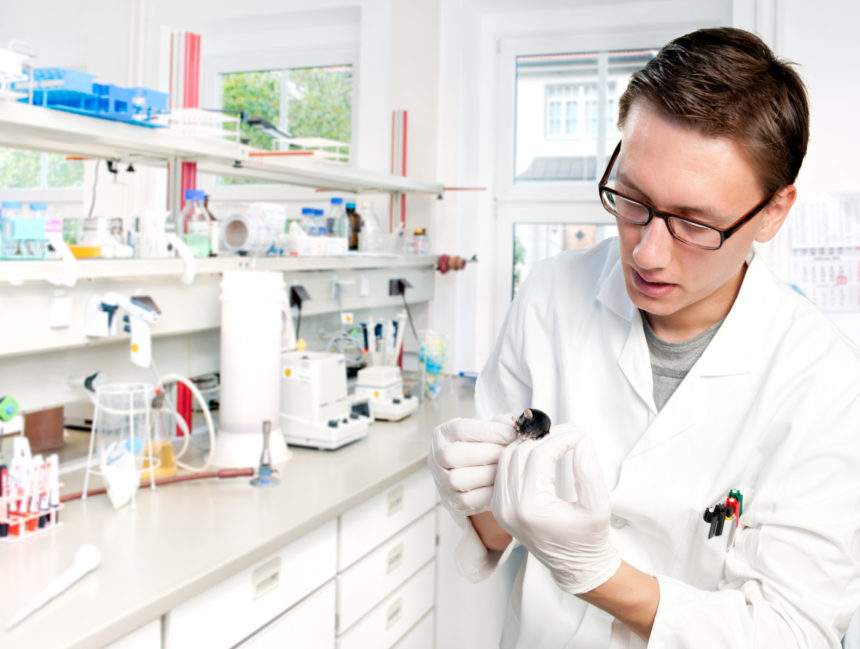This post was originally published on this site
The investigational therapy ATYR1923 for pulmonary sarcoidosis may help decrease lung inflammation by halting the infiltration of immune cells called neutrophils into the lungs, according to a preclinical study in mice.
Suzanne Paz, PhD, from the therapy’s developer aTyr Pharma, presented the findings in a poster, titled “ATYR1923 Reduces Neutrophil Infiltration in an Acute Lipopolysaccharide (LPS) Lung Injury Model,” at the Keystone Symposia 2019 Conference in February in Santa Fe, New Mexico.
Current medical treatment for sarcoidosis and interstitial lung diseases are limited to general anti-inflammatory medicines, such as corticosteroids, and transplant of the lungs, heart, or liver when these organs become severely damaged.
ATYR1923 is an immunomodulatory molecule that is able to bind to the Neuropilin-2 (NRP-2) receptor protein, part of the Resokine pathway. Specifically, ATYR1923 was designed to enhance this regulatory pathway of immune responses, with a focus on those affecting the lungs.
Researchers conducted a preclinical study in mice to better understand the role of ATYR1923 in regulating immune cells, specifically myeloid cells — the most abundant group of nucleated (with a nuclei) blood cells in the body.
Myeloid cells compose a critical arm of the immune system, and include cells that may promote inflammation, such as neutrophils, myeloid dendritic cells, and monocytes/macrophages.
Researchers injected (intravenous administration) three increasing doses of ATYR1923 — 1, 3, or 10 mg/kg — or a single dose of the immunomodulatory domain of ATYR1923 (called iMod) in mice 24 hours before inducing acute lung inflammation.
Acute lung inflammation was then induced by inhalation of lipopolysaccharide (LPS), the major component of the outer membrane of Gram-negative bacteria. In another group of mice, LPS was administered intravenously to induce a generalized (systemic) infection.
Researchers then analyzed the localization and levels of NRP-2, the target of ATYR1923, at the surface of various immune cells. In parallel, the team also stimulated mouse and human immune cells with LPS in lab tests (in vitro) to confirm that LPS stimulation worked.
Results showed that in both lab tests and mice, LPS stimulation triggered the increase of NRP-2 at the surface of several myeloid cells, including macrophages, dendritic cells, and neutrophils.
Researchers then confirmed that ATYR1923 was able to bind to mouse and human NRP-2, and most important, that preventive treatment with ATYR1923 or iMod resulted in a significant and dose-dependent decrease in lung infiltration of a specific group of immune cells called neutrophils. ATYR1923 had no effect in other myeloid cells.
Overall, the results suggested that ATYR1923 may help reduce lung inflammation by halting the infiltration of neutrophils.
“We are pleased to present … the first evidence of ATYR1923’s ability to bind to NRP-2 and down-regulate myeloid cells, specifically neutrophils,” Sanjay Shukla, MD, president and CEO of aTyr Pharma, said in a press release.
ATYR1923 is being investigated in a Phase 1b/2a clinical trial in patients with pulmonary sarcoidosis in the United States. The trial (NCT03824392) is currently recruiting participants (for more information, please visit this link).
“With ATYR1923 currently being evaluated in a Phase 1b/2a clinical study in patients suffering from pulmonary sarcoidosis, these findings help support our belief in the mechanism of action of ATYR1923 to suppress immune engagement in this and other serious and potentially debilitating interstitial lung diseases,” Shukla concluded.
The post Investigational Therapy ATYR1923 May Relieve Lung Inflammation, Preclinical Data Show appeared first on Sarcoidosis News.
The post Investigational Therapy ATYR1923 May Relieve Lung Inflammation, Preclinical Data Show appeared first on BioNewsFeeds.


